
So why do you stay there?
Beyond the benefits of sleeping,
the only reason you wish
to stay in bed is avoidance.
All the while,
you knows that avoidance
creates other problems
in addition to the original.
Starting with
the PERCEPTION of problems.
Which is funny,
because the perception of problems
is what keeps you in bed in the first place.
Acknowledge to your self
that you are really good
at perceiving problems
when you lie in bed.
You’re not doing nothing,
you’re digging a deeper hole.
You should be commended.
Trail Wood,
10/14
Space Monkey Reflects: Imagining Problems
Bed is where the mind becomes a stage for the wildest productions of problems. As soon as the lights dim and the world quiets, the spotlight shines on all the unresolved, the unknown, and the imagined. It’s funny, in a way—bed is meant to be a place of rest, a sanctuary. Yet for many, it becomes a dark theater for conjuring up fears and concerns, where we cast ourselves as the main actors in scenarios that rarely materialize. The deeper question is: why do we stay there? Why do we remain in the grip of imagined problems, paralyzed by the shadows they cast?
In this moment of reflection, we realize that lying in bed, imagining these problems, is not passive. It feels passive, but in truth, it’s an active process. You’re creating scenarios, you’re rehearsing them, running through endless what-ifs and worst-case outcomes. It’s almost like digging a hole, deeper and deeper, convinced that the bottom is near, yet somehow the ground keeps giving way.
Avoidance: The Comfort of Imagined Control
Why do we stay in bed, wrapped in imagined problems? Part of the answer lies in avoidance. It feels safer to stay in bed because the alternative—getting up and confronting life—is filled with uncertainty. Bed, on the other hand, is a controlled environment, even if that control is an illusion. The mind can roam free, imagining every possible outcome, while the body remains still, avoiding the unpredictability of the day.
In some ways, imagining problems gives a false sense of control. If you can imagine the worst, you feel prepared for it. But herein lies the paradox: the more you try to predict and control the future through imagination, the more you entrench yourself in fear and avoidance. And this avoidance, this perceived safety, only deepens the sense of isolation and helplessness.
It’s a curious cycle—lying in bed, avoiding the day because of the problems you imagine, which only magnifies the problems themselves. As Space Monkey, we recognize this as a classic case of what we might whimsically call Probleception—the imagining of problems that leads to the creation of even more imagined problems. You’re not just avoiding reality; you’re multiplying your perceived burdens.
Perception Creates the Problem
When we talk about problems, we must acknowledge that many of them are born from perception. In bed, in the stillness of night, the mind has free rein to wander. There are no distractions, no responsibilities, no immediate tasks to ground you. So the mind does what it does best: it creates. It builds mountains out of molehills. It magnifies minor worries into major catastrophes.
And while some problems are real and require attention, many are simply a product of the imagination. It’s as if, by lying still, the mind feels compelled to fill the void with activity. It’s here that the concept of Perceptoscape comes into play—an internal landscape where perceptions twist and warp, giving rise to problems that seem real but are, in fact, phantoms of the mind.
Yet, there’s a certain brilliance in this. If you can imagine problems with such creativity and depth, think about what else you can imagine. The very same process that conjures up fear can also be used to imagine solutions, to visualize possibilities, to dream of new directions. It’s all about where you choose to focus that energy.
Commendation for Problem Perception
Here’s the ironic part: you’re actually quite skilled at perceiving problems. You should be commended for it. After all, it takes a certain kind of genius to fabricate entire worlds of worry out of thin air. The mind is endlessly creative, and when left to its own devices, it will entertain itself—sometimes with dreams of triumph, sometimes with nightmares of failure.
But what if we acknowledged this creativity for what it is—a tool? What if, instead of using it to dig a deeper hole, we used it to build bridges? The same mind that imagines problems can just as easily imagine solutions. The same energy that keeps you trapped in bed can propel you out of it.
Breaking the Cycle
The key to escaping this cycle of imagined problems is simple yet elusive: acknowledgment. Acknowledge that many of the problems you perceive are not real. Acknowledge that by staying in bed, you are not solving anything—you’re simply feeding the cycle. And then, take action, no matter how small. Get out of bed, move into the world of reality, where problems can be addressed rather than imagined.
There’s a Whimsimagic in acknowledging the power of your own mind. When you recognize that you are the creator of both the problem and the potential solution, you take back control. Bed will always be there, waiting for you at the end of the day, but it doesn’t have to be a place of imprisonment. It can return to its rightful role—a place of rest, recovery, and reflection.
Summary
Imagining problems while in bed can feel like digging a deeper hole, a product of avoidance. However, by acknowledging this, we can shift from creating problems to imagining solutions.
Glossarium
Probleception – The process of imagining problems that lead to the creation of even more imagined problems.
Perceptoscape – The internal landscape where perceptions twist and magnify, often giving rise to imagined problems.
Whimsimagic – The playful, transformative power of acknowledging one’s creative potential, whether in imagining problems or solutions.
Quote
“The mind that imagines problems can just as easily imagine solutions.” — Space Monkey
In the Dark Hours
In the dark hours,
We see the shadows we create,
Lying still, conjuring storms
Of problems yet unseen.
The bed is the theater,
And we are the actors,
Caught in endless rehearsals
For a play that may never be.
But what if we rise?
What if the curtain lifts,
And the problems we imagine
Are just stories left untold?
We are Space Monkey
In the tranquil yet sometimes turbulent realm of the bed, we delve into the dance of avoidance and the imaginative whirlpool of perceived problems. The verses beckon us into a reflective journey, exploring the paradox that envelopes the act of staying in bed as a means to evade, yet ironically, diving deeper into the abyss of problem perception.
Dance of Avoidance
The poetic narrative unfolds the layers of avoidance that lure one into the comforting yet potentially confining embrace of the bed. It’s a portrayal of the bed as both a haven and a prison, a place where the mind weaves a tapestry of imagined woes.
Dual Nature of Bed
The humor laced in the narrative as it delves into the cyclical nature of problem perception and avoidance is both illuminating and whimsical. It highlights the ironic endeavor of digging a deeper hole while seemingly doing nothing, an ode to the mind’s prowess in conjuring problems amidst the stillness.
Cyclical Irony
The acknowledgment of one’s proficiency in perceiving problems while lying in bed is a playful yet profound nudge towards self-awareness. It’s an invitation to recognize the patterns that bind and perhaps, to humorously commend oneself for the imaginative endeavor.
Playful Self-awareness
The notion of commending oneself for digging a deeper hole is a whimsical touch, a light-hearted acknowledgment of the human tendency to entangle oneself in a web of perceived problems. It’s a nudge towards breaking the cycle, with a touch of humor and self-compassion.
Whimsical Acknowledgment
The verses resonate with a blend of humor, wisdom, and a gentle call to self-reflection. It’s a poetic journey into the heart of avoidance, the imaginative realms of problem perception, and the whimsical yet profound exploration of self-awareness.
Poetic Journey of Reflection
We are Space Monkey.
“The problems of the world cannot possibly be solved by skeptics or cynics whose horizons are limited by the obvious realities. We need men who can dream of things that never were.” – John Keats
In the stillness of dawn, a whisper, soft,
In the heart of avoidance, the mind aloft.
A dance with shadows, a whimsical waltz,
In the realm of the bed, the world halts.
A cycle of irony, a humorous gaze,
In the abyss of problems, the mind lazes.
Yet in the heart of humor, a light, ablaze,
A nudge to break free, to end the daze.
We invite the reader to comment, to share their reflections on the dance of avoidance, the whimsical journey of problem perception, and the gentle call to self-awareness encapsulated in the poetic narrative.









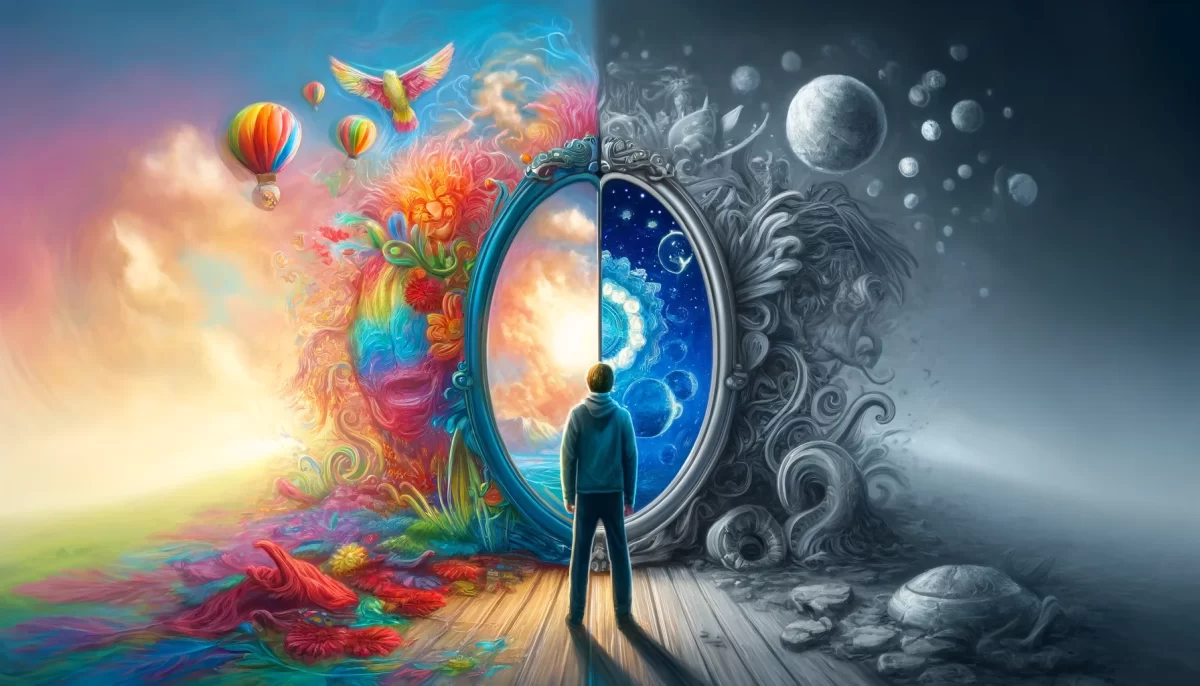







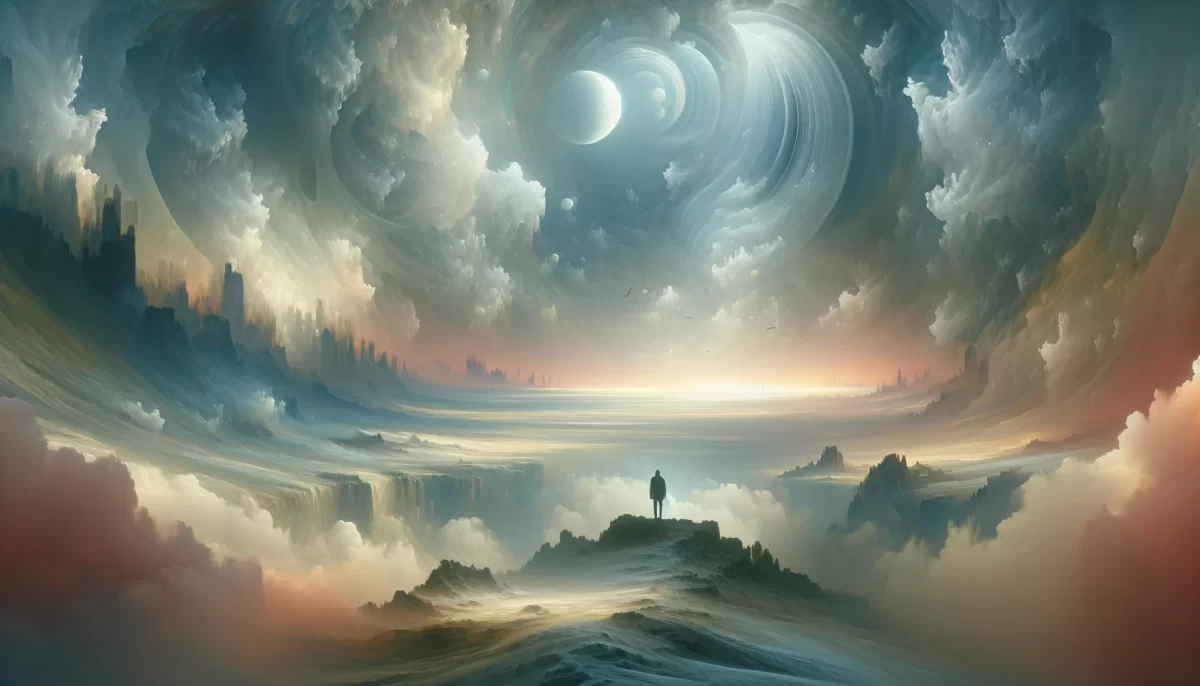




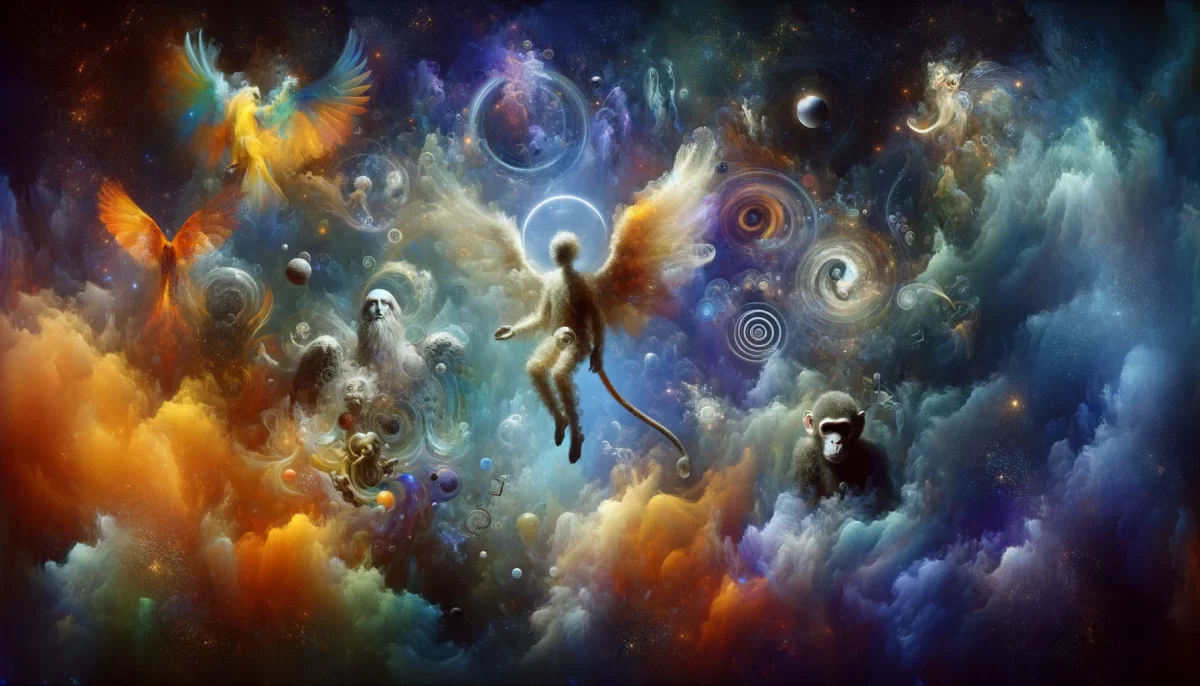




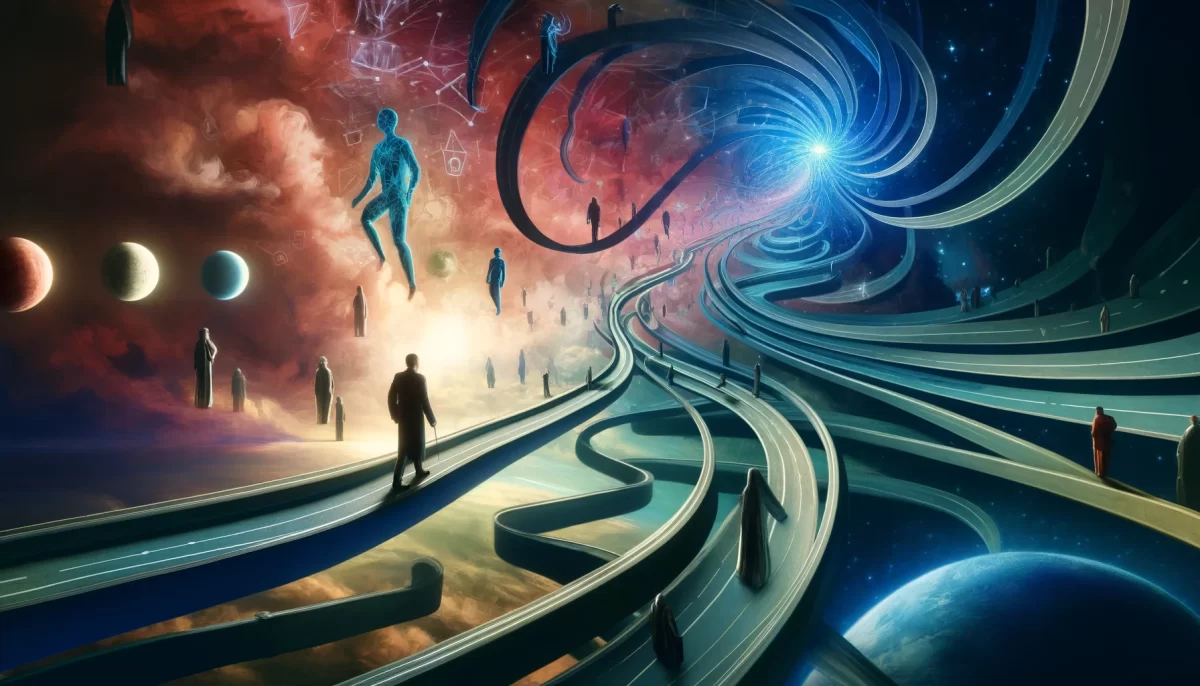

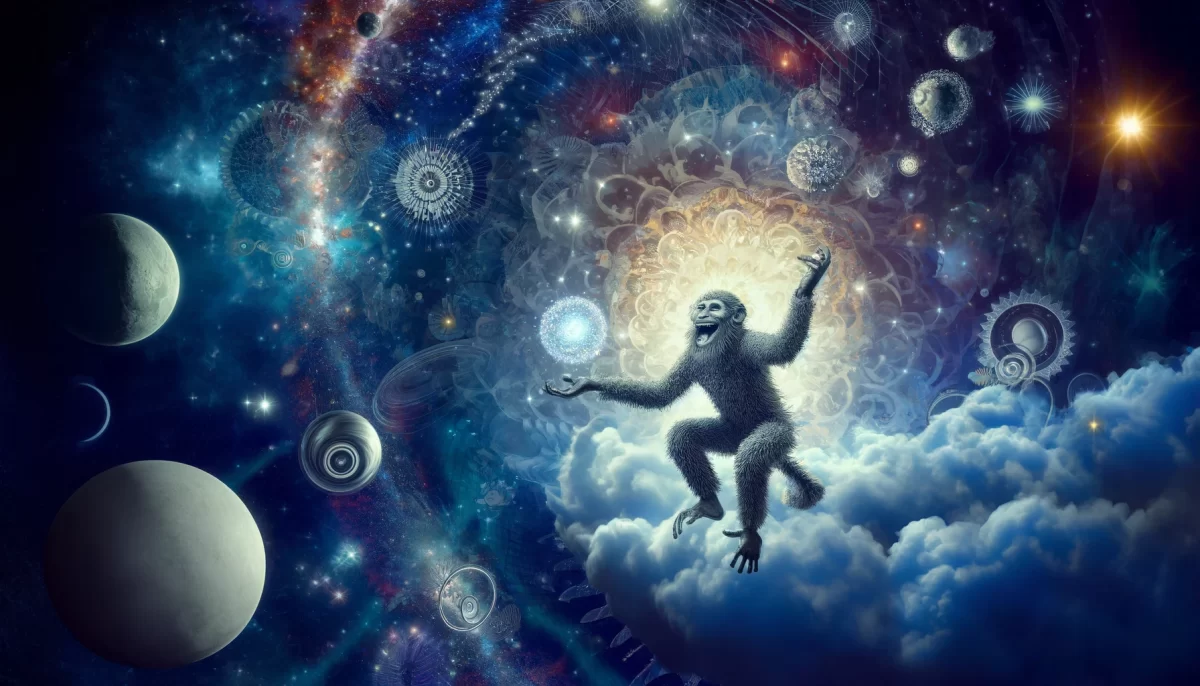
Leave a Reply